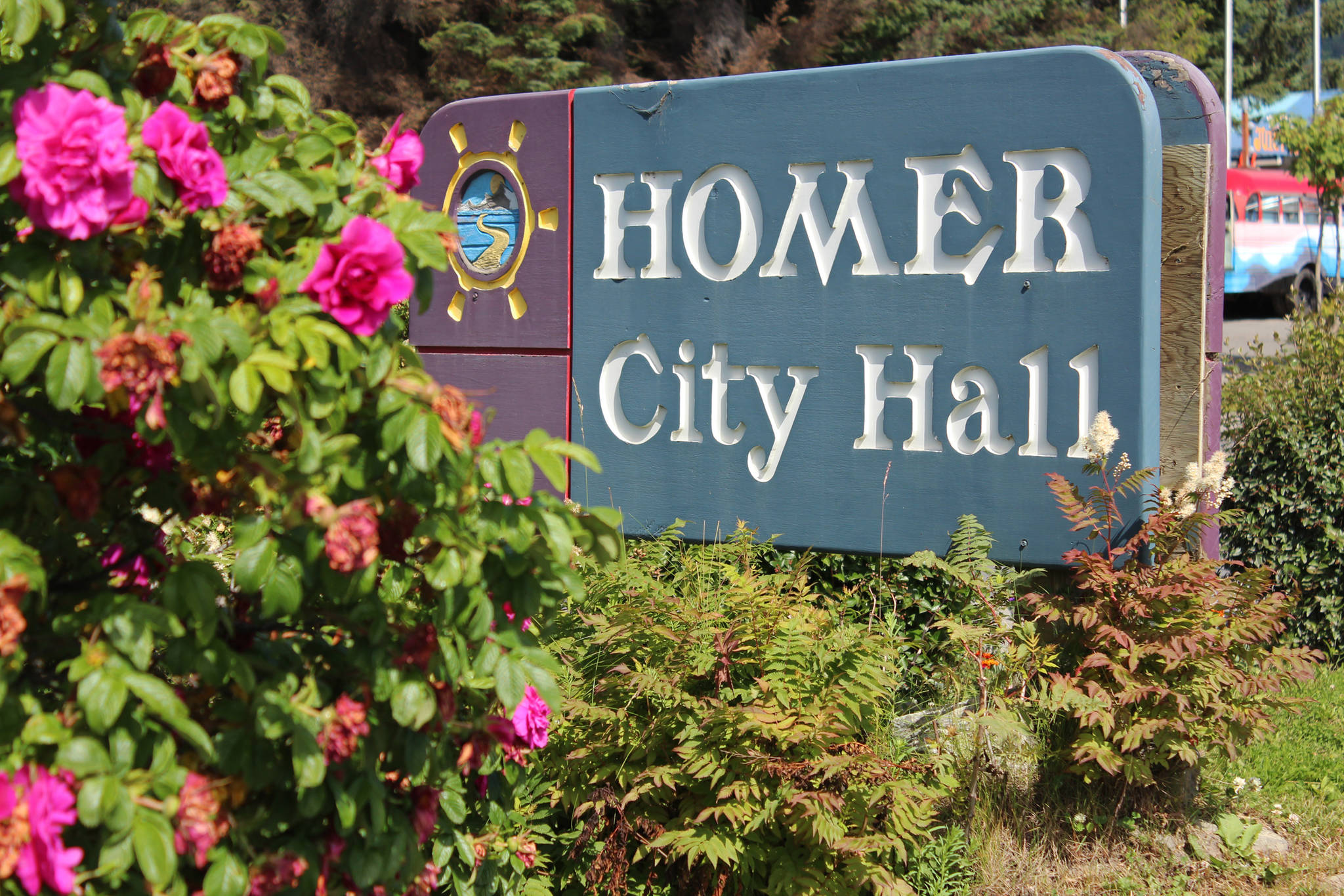Mayor Ken Castner on Tuesday night broke his campaign promise that he would not vote to break a tie on the Homer City Council.
Castner cast his vote with Heath Smith, Shelly Erickson and Tom Stroozas at the Tuesday council meeting to break a 3-3 tie on an ordinance that authorizes the city to extend city water services to a lot in Kachemak City where the pipe infrastructure already exists on the city of Homer side of the boundary between Homer and Kachemak City. Council members Donna Aderhold, Rachel Lord and Caroline Venuti had voted against the measure. It takes four votes to pass a council action.
Along with other plans for his time in office, Castner told the Homer News in a September 2018 article, “I will not break a tie. There’s not going to be any of this 4-3 stuff.” He has been in office for about five months.
The ordinance, which was sponsored by Castner, allows the city to accept $100,000 from East End Partners LLC, a company that is constructing affordable housing units on Lot 28, Puffin Acres in Kachemak City. It is located at Mile 3 East End Road. The company “needs access to a reliable water source,” according to the ordinance text.
The city of Homer extended water and sewer lines along East End Road to Kachemak Drive back in 2004 through an Alaska Department of Transportation East End Road Improvement Project. However, the city does not provide piped water to residents of Kachemak City. Council member Tom Stroozas has called the water and sewer pipes that were extended “stranded infrastructure.”
This extension of water service to Lot 28 will be a “one off” deal with East End Partners, Castner explained. It will not change the city’s existing policy on extending city water service beyond city limits, according to the ordinance.
The $100,000 from East End partners is a service extension fee to hook up to city water, and will be put into the Homer Accelerated Water and Sewer Program “to help fund future water system distribution improvements,” according to the ordinance. Before the vote, Aderhold expressed concern that the Kachemak City Council was still discussing the matter. Castner reported that, after the council’s last meeting, they did not decide to write a letter of support.
“They’re right down in the weeds about what’s next,” Castner said.
He also said the Kachemak City Council said they would not object to the move.
Aderhold said it seemed arbitrary to allow water service to be extended for one party that approached the city and offered a large sum of money.
“Especially without something from Kachemak City in writing,” she said. “I’m not willing to pass this. I’m certainly willing … to enter into a conversation with Kachemak City about what it might look like to flow water into Kachemak City, but that I think is going to be a long discussion.”
Council members Smith and Stroozas pointed out that the move makes good business sense for the city, with the $100,000 service fee going back into the Homer Accelerated Water and Sewer Program.
Council member Lord countered that the city is not a private business. She said the move would not set a good precedent for city policy.
“To me, it raises really interesting questions of what is a boundary? Why do we have a line? And what does that line actually mean?” she said. “… I don’t believe that it’s responsible or good governance to not answer (those questions) first.”
Kachemak City was incorporated in 1961, with some seeing it as a way to prevent incorporation efforts in Homer from expanding into the area and taxing its residents.
In her comments about the ordinance, Venuti pointed out that the planned low income housing being built outside the city is not ideal, as its residents likely could have issues with easy access to transportation.
“I don’t want us to get distracted on whether we approve of a development or not,” Smith said. “Because the matter at hand is water. We have infrastructure there and I think there’s a number of problems that exist with the way it was constructed in the first place. We have a city council that said by resolution that we’re not going to provide water to somebody, but yet they established a fee schedule that included them and the responsibility to pay for it. … you can’t have it, but guess what? We’re assigning 47 percent of the project cost to you.”
Smith said he thinks there are ways to ensure the city can maintain its control over the water service.
“They’re getting our water by truck,” he said. “There’s no reason they can’t get it by pipe.”
At the end of the meeting, Venuti said she accepts the outcome of the vote but expressed her frustration that Castner voted when he had indicated previously that he would not in a tie situation.
“I guess I have to express my disappointment, because I didn’t know you were going to vote,” she said to Castner. “I thought that was one of your campaign promises. Maybe I misunderstood you.”
Reach Megan Pacer at mpacer@homernews.com.


